Public Pedagogy, Transitional Justice, and Italys Non-violent Protest against the Mafia
Salvio reveals how the antimafia movement is being brought out from behind the curtains, with educators leading the charge. She critically analyses six cases of communal acts of antimafia solidarity and argues that transitional justice requires radical approaches to pedagogy that are best informed by journalists, educators, and activists working to remember not only victims of trauma, but those who resist trauma and violence.
PAULA M. SALVIO is a professor in the Department of Education at the University of New Hampshire.
The Story-Takers
Public Pedagogy, Transitional Justice, and Italys Non-violent Protest against the Mafia
Paula M. Salvio
University of Toronto Press
Toronto Buffalo London
University of Toronto Press 2017
Toronto Buffalo London
www.utorontopress.com
Printed in the U.S.A.
ISBN 978-1-4426-5031-2 (cloth)ISBN 978-1-4875-2177-6 (paper)
 Printed on acid-free, 100% post-consumer recycled paper with vegetable-based inks.
Printed on acid-free, 100% post-consumer recycled paper with vegetable-based inks.
Toronto Italian Studies
Library and Archives Canada Cataloguing in Publication
Salvio, Paula M., author
The story-takers : public pedagogy, transitional justice, and Italys non-violent protest against the mafia / Paula M. Salvio.
(Toronto Italian studies)
Includes bibliographical references and index.
ISBN 978-1-4426-5031-2 (cloth).ISBN 978-1-4875-2177-6 (paper)
1. Mafia Italy Sicily Case studies. 2. Organized crime Social aspects Italy Sicily Case studies. 3. Social movements Italy Sicily Case studies. 4. Nonviolence Italy Sicily Case studies. I. Title. II. Series: Toronto Italian studies
HV6452.5.S25 2017364.10609458C2017-903474-X
University of Toronto Press acknowledges the financial assistance to its publishing program of the Canada Council for the Arts and the Ontario Arts Council, an agency of the Government of Ontario.

For Alexandra, Lily, Zoe, and Una
Acknowledgments
The stories told in this book have been made possible by many extraordinary people. This book has benefited from the enthusiasm and challenging exchanges among my colleagues in the Department of Education at the University of New Hampshire, particularly Suzanne Graham, Joe Onosko, and our exceptional doctoral students: Clio Stearns, Shay Cassily, and Sara Clarke-Vivier. I also want to extend my gratitude to the Department of Education, the College of Liberal Arts, and the University of New Hampshire Center for the Humanities for their generous research funds, including a sabbatical leave for 2013, a 2012 Center for the Humanities Senior Scholar Fellowship, and support for the publication of this book. This scholarship also benefited from generative conversations and lively seminar discussions among my colleagues at the Boston Psychoanalytic Society and Institute during my residence as a Julius Silberger Fellow between 2011 and 2012, specifically with Bonnie Smolen and Dawn Skorczewski.
The Story-Takers is intended to honour the history of non-violent protest against mafia infiltration into the Italian state and the larger global field. I owe a great deal to the teachers, scholars, activists, and photojournalists who took time out of their demanding schedules to meet with me during my research visits to Italy. In Sicily, I am indebted to Edoardo Zaffuto and the co-founders of Addiopizzo and Addiopizzo Travel. Edoardo introduced me to the contemporary campaigns against extortion and graced this project with his insights, generous critiques, and sensitivity. Corleone Dialogos members Cosimo Lo Sciuto and Giuseppe Crapisi and photojournalists Letizia Battaglia and Shobha Battaglia gave their time in interviews, through email exchanges, and in invaluable discussions about antimafia non-violent protest. Franco Zecchin offered many hours of valued discussions and intellectual insights into the ethics of using photography to document mafia violence. I benefited from correspondence with and challenging feedback from Deborah Puccio-Den and Umberto Santino. I am also grateful to Antonella Lombardi and Vito Lo Monaco for extended discussions about antimafia legislation and educational initiatives. Maria De Carlo offered comfort and warmth during my research visits and made her home in Palermo feel like my own.
Many of the ideas in these chapters began as conference presentations. I thank all those who invited me to present my scholarship on transitional justice pedagogy and antimafia protests, including Lisa Farley, Sara Mathews, and R.M. Kennedy, who organized the conference Art in Times of Conflict: Curricular Explorations at Wilfrid Laurier University; Aparna Tarc and Mario Di Paolantonio, who invited me to speak at York Universitys Summer Institutes Pedagogies and the Arts of Memory; and Dennis Sumara and Mary Bryson, who invited me to speak at the University of British Columbia. William Pinar offered critical support from the very early stages of this project. This book has also benefited from the thoughtful comments and counsel of colleagues whom I have met and worked with at conferences and corresponded with over the years. My perspectives on transitional justice, public pedagogy, and antimafia education have been strengthened by the scholarship of Dana Renga, R.M. Kennedy, Derek Duncan, Bronwen Leebaw, Mario Di Paolantonio, Deborah Britzman, and the late Roger Simon. This project also benefited in profound ways from Warren Crichlows astute reading and analysis. Robin Pickering-Iazzi and Piero Garofalo offered keen observations, unending support, and intellectual companionship. I extend my deepest gratitude to Amy Boylan, whose dynamic intellectual range in Italian cultural studies inspired this project.
It has been an absolute pleasure to work with Douglas Hildebrand, my editor at the University of Toronto Press, as well as with the anonymous reviewers who provided thoughtful and constructive feedback. My sincere thanks go to Alexandra Shaker, Kristen Scott, Dawn Hunter, and Mary Newberry for their sharp editorial skills and collaborative spirits. Peter Taubman fills each day for me with inspiration and intellectual and emotional riches. I am grateful for his patience during the long process of writing and revision and for never failing to make me laugh.
Some sections of this book were first published in different forms. Chapter 2 first appeared as an essay in Italian Studies 67, no. 3 (2012): 397410. Chapter 5 appeared as Reconstructing Memory through the Archives: Public Pedagogy, Citizenship and Letizia Battaglias Photographic Record of Mafia Violence, in Journal of Pedagogy, Culture and Society 22, no. 1 (2014): 97116. Parts of Chapter 4 appeared under the title A Taste of Justice: Digital Media and Libera Terras Antimafia Public Pedagogy of Agrarian Dissent in

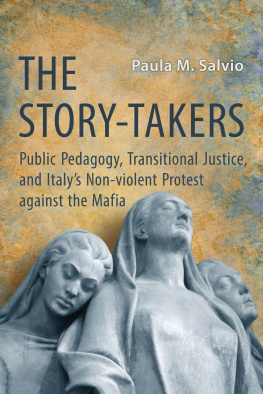
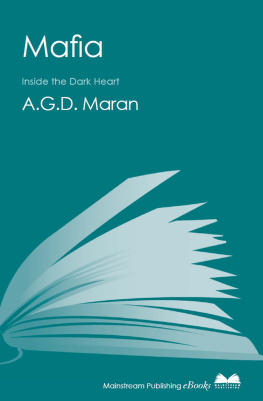


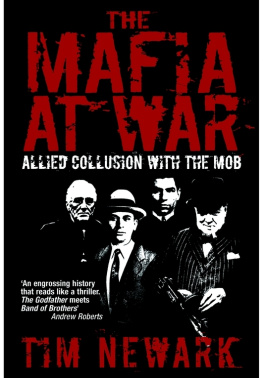
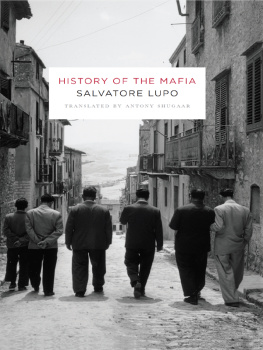
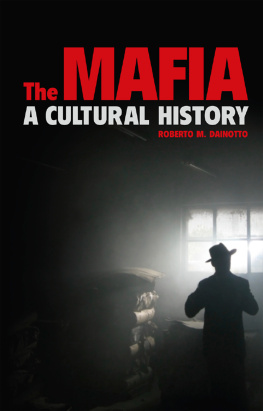

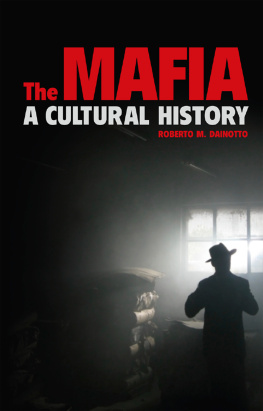
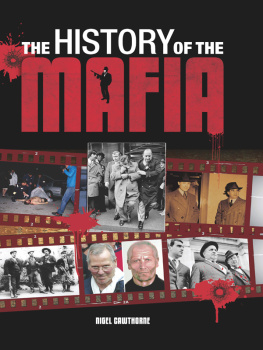
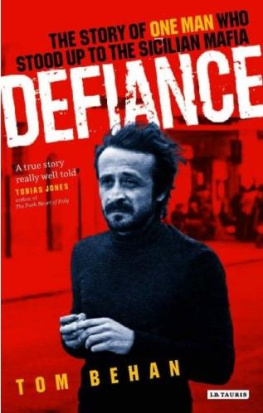

 Printed on acid-free, 100% post-consumer recycled paper with vegetable-based inks.
Printed on acid-free, 100% post-consumer recycled paper with vegetable-based inks.